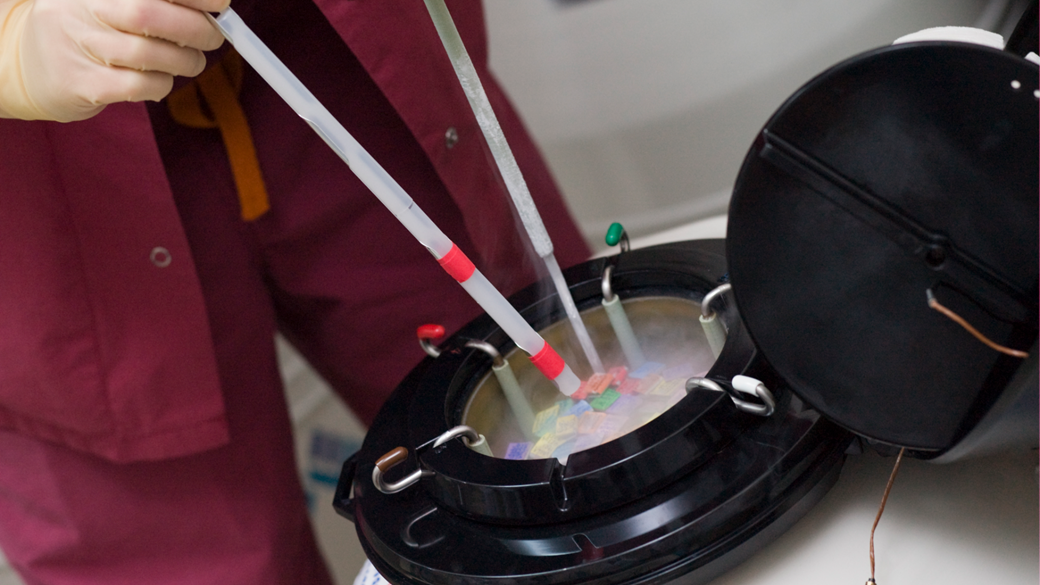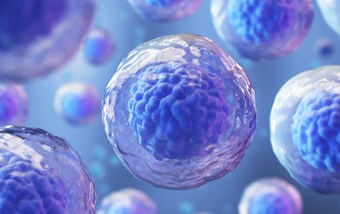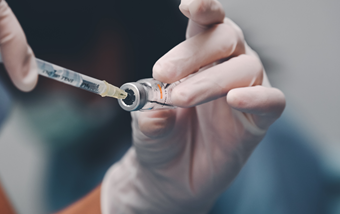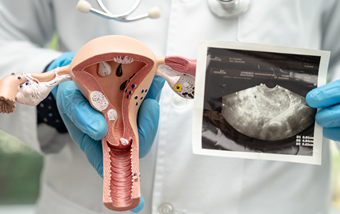Choosing the right time to freeze your eggs is an important decision. Those with female reproductive organs are born with their total number of eggs. Egg quality and egg numbers can start to decline from our mid 30’s onwards. No matter what your reasoning is to freeze your eggs, it is important you have the right information, so you can feel confident in the decisions you are making. This blog will delve into the egg freezing process and how age factors into the decisions you make about your next steps.
What is egg freezing?
Egg freezing, or oocyte cryopreservation, is a fertility preservation technique where the eggs are extracted, frozen, and stored for future use. This method allows individuals to safeguard their fertility potential.
Why has egg freezing increased in popularity?
Over the years, advancements in medical technology and the options to take a path towards career and personal goals have made egg freezing more popular for those who are unsure if, or when they would like to start a family. Individuals are becoming more empowered to take control of their reproductive health and family planning timelines. Egg freezing has become more accessible and successful over the years. Reports show a significant survival rate post-thaw with vitrification, making the process highly effective. Although it is important to keep in mind that there is no guarantee of pregnancy after treatment with frozen eggs due to external factors.
What is the egg freezing process?
The egg freezing journey involves several steps, including ovarian stimulation, egg retrieval, freezing the eggs, and storage. The first part of the journey involves visiting the clinic for an initial scan and consultation and blood tests followed by hormonal stimulation and egg retrieval. Our specialists emphasize the importance of ovarian reserve testing to determine the quality and quantity of eggs. By booking an Initial scan and consultation, our qualified nurses can provide insight into your fertility and the best options to meet your goals.
Part 1:
Initial scan and consultation: You will visit your nearest satellite clinic for an advanced ultrasound scan, your results will be shared with you in a virtual consultation, with one of our fertility nurse consultants.
Part 2:
Ovarian Stimulation: During the first part of your treatment, you will be prescribed hormonal injections, which are self-administered in the comfort of your own home. Your nurse consultant will instruct you on administering the injections to ensure you feel confident to do this beforehand. This medication works to stimulate the ovaries and increase egg production.
Part 3:
Egg Retrieval: You will be invited to your nearest hub clinic; we’ll ask you to have someone to accompany you or pick you up after the procedure. You’ll then be put under light sedation for egg retrieval. Our team will be available to support you and make sure you feel comfortable before and after the procedure. Once we feel you are ready to leave, we will discharge you; this is usually 1-2 hours after collection. Recovery time after the egg collection process ranges between 24 and 48 hours.
Attend our FREE Online IVF Event with Live Nurse Q&A and get your questions answered by a Fertility Nurse Consultant.
ADDED BONUS - everyone who attends our webinar will receive £50 off an Initial Consultation and Scan at abc ivf.

When is the best time to freeze your eggs?
Statistics from IVI UK suggest that women under 35 have higher success rates in egg freezing. Moreover, our specialists at abc ivf note that egg quality starts declining after 35, making it advisable to freeze eggs earlier for better outcomes. However, it is possible to freeze your eggs successfully after the age of 35; this will usually require persistent monitoring to allow adjustments to medication if necessary.
Am I able to freeze my eggs?
If you fit the criteria for treatment at abc IVF you are likely to be eligible to freeze your eggs with us. We provide comprehensive consultations to guide patients through the process. If our specialists do not recommend egg freezing, for medical reasons, this will be discussed with you in your consultation.
What are the benefits of freezing my eggs?
Although there are biological benefits to freezing your eggs, the most significant reasons are based on personal preferences and individual decisions. It is important to keep in mind that egg freezing should be your choice, and external pressures shouldn’t influence a procedure which takes time and resources.
Many individuals decide to freeze their eggs to preserve their fertility for later to allow time to find the right partner, to maintain fertility in cases of illness or medical treatments, or simply as a safeguarding option. The availability of egg freezing can be empowering as it provides individuals with more options in family planning decisions.
How long can I freeze my eggs for ?
Eggs frozen through vitrification can be stored for many years without significant quality decline. They can be used for future fertility treatments. The law allows frozen eggs to be stored for up to 55 years. It is important to note that you will need to renew consent for storage every 10 years. Storage of frozen eggs incurs an annual cost which varies depending on the clinic. At abc IVF our egg freezing package includes 1 year of storage.
What are the success rates of pregnancy from frozen eggs?
Success rates for egg freezing are based on age and egg quality. Younger individuals have higher success rates with frozen eggs due to higher egg quality. IVI UK shares a clear and comprehensive view of egg freezing success rates based on age. It is important to consider that although egg freezing may be successful at an advanced age the success of pregnancy with frozen eggs freezing is dependent on the quality and quantity of eggs retrieved.
Where can I freeze my eggs?
If you are considering egg freezing it is important to do some research into the options available as well as factors such as protocols and technique, cost, and success rates. It is important to choose a clinic which will provide guidance and the necessary information so you can prepare both physically and emotionally for treatment. At abc IVF our team offers egg freezing services, providing expertise to support your fertility journey. Connect with our team today to explore options for preserving your fertility.




